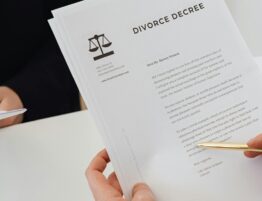The state of Arizona takes misconduct involving weapons very seriously. Arizona Revised Statute 13-3102 outlines the laws regarding the possession of deadly weapons and the consequences for violating these statutes. If you are charged with misconduct involving weapons in Arizona, it is important to understand the potential penalties you may face.
Under ARS 13-3102, possession of a deadly weapon by a prohibited possessor is a class 4 felony, which can result in up to 3.75 years in prison for a first offense.
Facing charges for misconduct involving weapons in Arizona? Contact the Law Offices of Daniel Hutto for expert legal guidance. Their experienced attorneys understand the severity of these charges, including potential prison time, and offer free consultations to craft a strong defense strategy tailored to your case.
Here’s what this article will cover:
- Understanding Misconduct Involving Weapons Under ARS 13-3102
- What Is Considered a Deadly Weapon?
- Criminal Implications of Misconduct Involving Weapons in Arizona
- Defense Strategies for Charges Under A.R.S § 13-3102
- Penalties for Misconduct Involving Weapons Charges
- Prohibited Possessors Under § 13-3101
- Handling a Misconduct Involving Weapons Charge
- Frequently Asked Questions
- How a Criminal Defense Attorney Can Help
Our Phoenix Criminal Defense Attorneys are Here to Help!

Understanding Misconduct Involving Weapons Under ARS 13-3102
Under Arizona law, ARS 13-3102 outlines a broad range of activities that are categorized as misconduct involving weapons. These include, but are not limited to:
- Concealed Carry Violations: It’s considered misconduct to carry a deadly weapon (other than a pocket knife) concealed on your person or within immediate control in a means of transportation. This applies particularly if it’s carried in the furtherance of a serious or violent felony offense, or if the individual fails to disclose the presence of a concealed deadly weapon when asked by a law enforcement officer.
- Age Restrictions: Individuals under 21 years old are prohibited from carrying a concealed deadly weapon.
- Prohibited Weapons and Possessors: Manufacturing, possessing, transporting, selling, or transferring prohibited weapons, or possessing any deadly weapon if you are a prohibited possessor, constitutes misconduct. Prohibited possessors typically include individuals with certain criminal convictions, those adjudicated mentally incompetent, and minors.
- Weapon Defacement: Defacing a deadly weapon or possessing a defaced deadly weapon is also considered misconduct.
- Weapon Use in Felonies and Terrorism: Using or possessing a deadly weapon during the commission of any felony, or in furtherance of acts of terrorism, is a serious offense under this statute.
- Public Safety Restrictions: The law includes specific provisions about carrying weapons in public establishments, polling places, school grounds, and nuclear or hydroelectric generating stations unless specifically authorized by law.
- Trafficking and Supplying Weapons for Criminal Use: Supplying, selling, or giving control of a firearm to another person, knowing that it could be used in the commission of a felony, or trafficking weapons for the benefit of criminal enterprises are serious offenses under this statute.
What Is Considered a Deadly Weapon?
In the context of Arizona law, particularly under ARS 13-3101 and ARS 13-3102, the definition of a “deadly weapon” is broad and encompasses a variety of items. Here is a list of what can be considered a deadly weapon according to Arizona statutes:
- Firearm: This includes any loaded or unloaded handgun, pistol, revolver, rifle, shotgun, or other weapons that can expel a projectile by the action of an explosive.
- Explosive Materials: This category covers dynamite, nitroglycerine, black powder, or similar explosive materials, including plastic explosives. However, ammunition or ammunition components used for hand-loading purposes are not included in this definition.
- Improvised Explosive Device (IED): Devices that incorporate explosives or destructive, lethal, noxious, pyrotechnic, or incendiary chemicals, designed to destroy, disfigure, terrify, or harass, fall under this definition.
It is important to note that the term “deadly weapon” in Arizona law is not limited to these items but includes anything that is designed for lethal use. Therefore, a wide range of objects could potentially be classified as deadly weapons depending on their design and intended use.
Criminal Implications of Misconduct Involving Weapons in Arizona
In Arizona, the criminal implications of misconduct involving weapons are substantial and varied, depending on the specific offense. These offenses range from misdemeanors to felonies, with the severity dictated by factors such as the nature of the weapon, the manner of its use, and the individual’s criminal history.
For instance, carrying a concealed weapon without a permit typically results in a Class 1 misdemeanor, while possession of a weapon by a prohibited possessor can escalate to a Class 4 felony.
Additionally, using a weapon in the commission of a felony or in activities related to terrorism can lead to more severe charges. The consequences of these charges extend beyond immediate legal penalties.
Convictions can lead to long-term effects, including the loss of firearm rights, challenges in employment opportunities, and substantial legal and financial burdens.
Defense Strategies for Charges Under A.R.S § 13-3102
When facing charges under (A.R.S) § 13-3102, which addresses misconduct involving weapons, there are several defense strategies that can be employed. These strategies depend on the specifics of the case and the evidence available.
Some of the key defense approaches include:
Lack of Knowledge
-
- Arguing that the defendant was not aware of the presence of the weapon can be a valid defense, especially in situations where the weapon was found in a shared vehicle or living space.
Temporary and Necessary Possession
-
- This defense applies when the possession of the weapon was temporary and for a necessary purpose, such as self-defense or preventing greater harm.
- This defense applies when the possession of the weapon was temporary and for a necessary purpose, such as self-defense or preventing greater harm.
Weapon’s Operability
-
- Challenging the operability of the weapon can be a strategy, particularly in cases where the weapon is incapable of being used as designed, thus questioning its classification as a “deadly weapon.”
- Challenging the operability of the weapon can be a strategy, particularly in cases where the weapon is incapable of being used as designed, thus questioning its classification as a “deadly weapon.”
Constitutional Violations
-
- If there were violations of constitutional rights during the arrest or seizure of the weapon, such as unlawful search and seizure, these can form the basis of a defense.
- If there were violations of constitutional rights during the arrest or seizure of the weapon, such as unlawful search and seizure, these can form the basis of a defense.
Mistaken Identity or False Accusation
-
- In some cases, the defendant may not be the individual who actually possessed or used the weapon, or they might have been falsely accused.
- In some cases, the defendant may not be the individual who actually possessed or used the weapon, or they might have been falsely accused.
Lawful Possession or Use
-
- Demonstrating that the possession or use of the weapon was lawful under Arizona law, such as having appropriate permits or using the weapon in self-defense, can be a strong defense.
- Demonstrating that the possession or use of the weapon was lawful under Arizona law, such as having appropriate permits or using the weapon in self-defense, can be a strong defense.
It’s crucial to have a detailed understanding of the circumstances surrounding the case and to tailor the defense strategy accordingly. An experienced criminal defense attorney can evaluate the evidence, identify the most appropriate defense strategy, and advocate effectively on behalf of the defendant.
Consult the Law Offices of Daniel Hutto for a free consultation at (602) 536-7878 to explore your legal options in detail.
Penalties for Misconduct Involving Weapons Charges
In Arizona, the penalties for misconduct involving weapons charges vary widely based on the severity of the offense and the specific provisions violated under ARS 13-3102.
Understanding these penalties is crucial for anyone facing such charges:
- Misdemeanor Charges: Lesser offenses, typically involving carrying a concealed weapon without a permit, may be classified as misdemeanors. Penalties can include fines, community service, probation, and in some cases, jail time.
- Felony Charges: More serious violations, such as possessing a weapon as a prohibited possessor or using a weapon in the commission of a serious crime, are often classified as felonies. These can lead to significant prison sentences, hefty fines, and long-term probation.
- Enhanced Sentencing: Certain factors, like prior criminal history or the use of a weapon in the commission of a felony, can lead to enhanced sentencing. This means longer prison terms and increased fines.
- Long-Term Consequences: Beyond immediate legal penalties, a conviction for a weapons charge can have lasting impacts, including the loss of the right to own or possess firearms, challenges in finding employment, and social stigma.
- Probation and Restitution: In some cases, the court may impose probation and restitution, which involves repaying victims for any harm or losses caused by the offense.
Each case is unique, and the penalties can vary greatly based on the specifics of the charge and the individual’s background. It’s important for those facing these charges to consult with a knowledgeable criminal defense attorney who can provide guidance on the potential penalties and legal process.
Prohibited Possessors Under § 13-3101
Under Arizona’s A.R.S § 13-3101, the definition of prohibited possessors, those who are legally barred from owning, possessing, or using firearms and other deadly weapons, is clearly outlined. According to the statute:
Prohibited Possessors
- Danger to Self or Others: Individuals deemed a danger to themselves or others, or who have persistent or acute disabilities as per court orders, and have not had their firearm rights restored.
- Felony Convictions: Persons with felony convictions, either within Arizona or elsewhere, or those adjudicated delinquent for a felony, without restored firearm rights.
- Current Inmates: Those currently serving time in any correctional or detention facility.
- Probation and Parole: Individuals on probation for domestic violence or felony offenses, parole, community supervision, work furlough, home arrest, or release, including those under interstate compact probation or parole.
- Undocumented and Certain Nonimmigrant Aliens: Undocumented aliens, nonimmigrant aliens in Arizona for business, pleasure, or study without a permanent residence abroad, except for those with specific exemptions like valid hunting licenses or participating in sanctioned shooting events.
- Mental Competence: Individuals found incompetent under the Arizona rules of criminal procedure, who haven’t subsequently been found competent.
Handling a Misconduct Involving Weapons Charge
Facing a misconduct involving weapons charge in Arizona can be a daunting experience, given the complexity of the legal system and the severity of potential penalties.
- Immediate Response: Upon being charged, it’s crucial to exercise your right to remain silent and avoid providing any statements that could be used against you in court. The next step should be to seek legal counsel. An experienced criminal defense attorney can offer guidance, protect your rights, and start building a defense strategy.
- Understanding the Charges: Familiarize yourself with the specific aspects of your charge under ARS 13-3102. Each charge has different implications, defenses, and potential penalties.
- Pre-Trial Process: Before trial, there will be preliminary hearings, where your attorney can negotiate with prosecutors, possibly working towards a plea deal or even getting charges reduced or dismissed based on the evidence or procedural issues.
- Developing a Defense Strategy: Your attorney will help in developing a defense strategy, which may involve challenging the evidence, presenting mitigating factors, or leveraging legal defenses like lack of knowledge or temporary and necessary possession.
- Trial Phase: If the case goes to trial, your attorney will present your defense, cross-examine witnesses, and work to create reasonable doubt about the prosecution’s case.
- Sentencing and Appeals: If convicted, the next step is sentencing, where the judge will determine the penalties. If there are grounds for an appeal, such as legal errors during the trial, your attorney can guide you through the appeals process.
Throughout this process, clear communication with your legal counsel is essential. They can provide a comprehensive understanding of each step, represent your interests, and work towards the best possible outcome. Remember, every case is unique, and the approach to each should be tailored to fit the specific circumstances and evidence at hand.
Frequently Asked Questions
Can I face weapons charges if the firearm was not loaded?
-
- Yes, in Arizona, you can be charged with a weapons offense even if the firearm was not loaded. The law considers the potential capability of the weapon, not just its immediate state.
- Yes, in Arizona, you can be charged with a weapons offense even if the firearm was not loaded. The law considers the potential capability of the weapon, not just its immediate state.
Are there any exceptions for carrying a concealed weapon in Arizona?
-
- Yes, certain exceptions exist, such as for law enforcement officers or individuals with a valid concealed carry permit. Specific conditions and limitations apply, so it’s important to understand these fully.
- Yes, certain exceptions exist, such as for law enforcement officers or individuals with a valid concealed carry permit. Specific conditions and limitations apply, so it’s important to understand these fully.
How does Arizona define a ‘prohibited weapon’?
-
- Arizona law categorizes certain weapons as prohibited, which typically include automatic firearms, explosives, and certain types of bladed weapons. The specifics can be found in ARS 13-3101.
- Arizona law categorizes certain weapons as prohibited, which typically include automatic firearms, explosives, and certain types of bladed weapons. The specifics can be found in ARS 13-3101.
Can a weapons charge be expunged from my record in Arizona?
-
- Arizona law has specific criteria for setting aside convictions, but it depends on the nature of the offense and your criminal history. Legal counsel can provide guidance on this process.
- Arizona law has specific criteria for setting aside convictions, but it depends on the nature of the offense and your criminal history. Legal counsel can provide guidance on this process.
What role does mental health play in a weapons charge case?
-
- Mental health can be a significant factor, especially if it relates to the circumstances of the offense or your status as a prohibited possessor. It’s a complex area requiring careful legal and psychological consideration.
- Mental health can be a significant factor, especially if it relates to the circumstances of the offense or your status as a prohibited possessor. It’s a complex area requiring careful legal and psychological consideration.
Are minors subject to the same weapons charges as adults in Arizona?
-
- Minors can be charged with weapons offenses, but the charges and penalties might be handled differently, often through the juvenile justice system, which focuses more on rehabilitation.
What are the legal consequences of carrying a weapon in a public establishment in Arizona?
-
- Carrying a weapon in a public establishment without proper authorization can lead to criminal charges, especially if you refuse a reasonable request to remove the weapon by the establishment’s operator.
- Carrying a weapon in a public establishment without proper authorization can lead to criminal charges, especially if you refuse a reasonable request to remove the weapon by the establishment’s operator.
How much prison time can I face for a misconduct involving weapons (MIW) charge in Arizona?
-
- Carrying a weapon in a public establishment without proper authorization can lead to criminal charges, especially if you refuse a reasonable request to remove the weapon by the establishment’s operator.
What should I do if I’m asked to remove my weapon in a public place but refuse?
-
- Refusing to remove your weapon when lawfully requested can escalate to a criminal offense. It’s important to comply with such requests and consult an attorney if you believe your rights are being infringed upon.
- Refusing to remove your weapon when lawfully requested can escalate to a criminal offense. It’s important to comply with such requests and consult an attorney if you believe your rights are being infringed upon.
Are there different types of misconduct involving weapons charges in Arizona?
-
- Yes, MIW charges in Arizona range from misdemeanor offenses, like carrying a concealed weapon without a permit, to more serious felonies, such as possessing a weapon as a prohibited possessor or using a weapon in the commission of a felony.
- Yes, MIW charges in Arizona range from misdemeanor offenses, like carrying a concealed weapon without a permit, to more serious felonies, such as possessing a weapon as a prohibited possessor or using a weapon in the commission of a felony.
How a Criminal Defense Attorney Can Help

When dealing with a misconduct involving weapons charge in Arizona, the support of a knowledgeable criminal defense attorney is essential. The Law Office of Daniel Hutto, based in Phoenix, specializes in a broad range of criminal defense areas, including weapons charges.
Their experienced team is adept at crafting personalized defense strategies, offering expert legal guidance through each stage of the process. From negotiating with prosecutors to advocating in court, they work diligently to protect the rights and interests of their clients. Understanding the stress and complexity of legal battles, they provide not only robust legal representation but also empathetic support throughout the case.
For those facing such serious charges and in need of legal assistance, the Law Offices of Daniel Hutto can be a valuable resource. They can be reached at 602) 536-7878 for consultation and representation, ensuring dedicated and effective legal counsel in these challenging situations.












